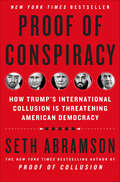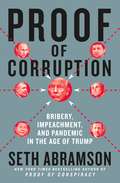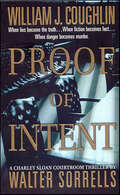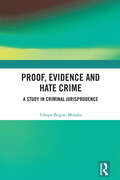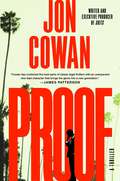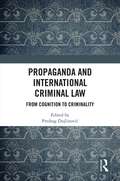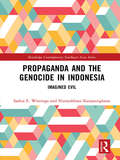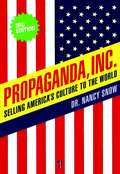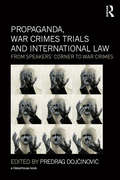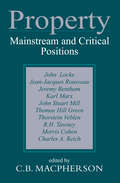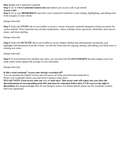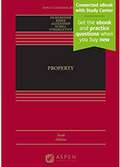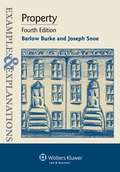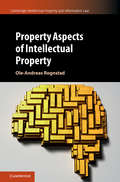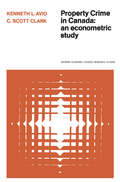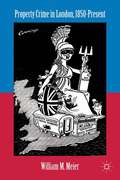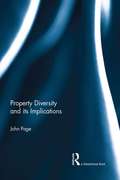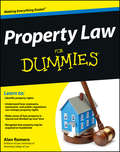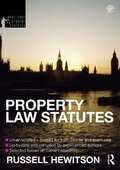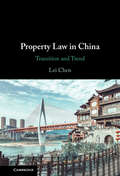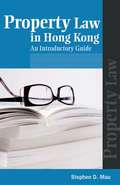- Table View
- List View
Proof of Conspiracy: How Trump's International Collusion Is Threatening American Democracy
by Seth AbramsonInstant New York Times Bestseller"A richly documented indictment of power and corruption." —Kirkus Reviews Through diligent research, Seth Abramson exposes a story that U.S. media has largely missed: a pre-election geopolitical conspiracy involving Saudi Arabia, the United Arab Emirates, Israel, and Russia that sought to put Trump in the White House—and succeeded. In late 2015, convicted pedophile, international dealmaker, and cooperating witness in Special Counsel Robert Mueller’s Russia investigation George Nader convened a secret meeting aboard a massive luxury yacht in the Red Sea. Nader pitched Saudi Crown Prince Mohammed bin Salman, Emirati Crown Prince Mohammed bin Zayed, Egyptian President Abdel Fattah el-Sisi and other Middle Eastern leaders a plan for a new pro-U.S., pro-Israel alliance of Arab nations that would fundamentally alter the geopolitics of the Middle East while marginalizing Iran, Qatar, and Turkey. To succeed, the plan would need a highly placed American politician willing to drop sanctions on Russia so that Vladimir Putin would in turn agree to end his support for Iran. They agreed the perfect American partner was Donald Trump, who had benefited immensely from his Saudi, Emirati, and Russian dealings for many years, and who, in 2015, became the only U.S. presidential candidate to argue for a unilateral end to Russian sanctions and a far more hostile approach to Iran.So begins New York Times bestselling author Seth Abramson’s explosive new book Proof of Conspiracy: How Trump's International Collusion Threatens American Democracy, a story of international intrigue whose massive cast of characters includes Israeli intelligence operatives, Russian oligarchs, Saudi death squads, American mercenary companies, Trump’s innermost circle, and several members of the Trump family as well as Trump himself—all part of a clandestine multinational narrative that takes us from Washington, D.C. and Moscow to the Middle Eastern capitals of Riyadh, Abu Dhabi, Jerusalem, Cairo, Tehran, and Doha. Proof of Conspiracy is a chilling and unforgettable depiction of the dangers America and the world now face.
Proof of Corruption: Bribery, Impeachment, and Pandemic in the Age of Trump
by Seth AbramsonIn the third volume of his Proof series, New York Times bestselling author Seth Abramson takes readers on a deep dive into the Ukraine scandal, revealing it to be more sinister, complex, and transnational than previously thought. Abramson’s research on Trump administration corruption positions the Ukraine scandal as the foreseeable culmination of years of clandestine machinations involving scores of players, from Beijing to Budapest, Ankara to Caracas, Warsaw to Jerusalem, Kyiv to Riyadh, and Moscow to D.C. While many know about the July 2019 telephone call that ignited the Ukraine scandal, most don’t know about the concurrent attempts by members of Trump’s inner circle to take over Ukraine’s national gas company and bolster dangerous pro-Kremlin Ukrainian oligarchs—moves that would have benefited Putin and destabilized Ukraine’s government and economy.In Beijing, Trump’s dealings with the Chinese government not only enriched him and his family, but also culminated in him successfully seeking 2020 election interference from Xi Jinping in the form of closely held information about Joe Biden. In Venezuela, many of the actors involved in the Ukraine scandal engaged in similarly secretive, Kremlin-friendly negotiations that undermined U.S. policy. In Syria and Iraq, Trump’s personal indebtedness to autocrats in Turkey, Israel, Saudi Arabia, and the UAE cost untold lives. And Abramson brings the story back to an increasingly fractured and depleted United States, where the COVID-19 pandemic exposes the staggering domestic consequences of the Trump administration’s foreign machinations.In Proof of Corruption, Seth Abramson lays bare Trump’s decades-long pattern of corruption. This globe-spanning narrative is an urgent warning about the unprecedented threat posed by a corrupt president and his administration.
Proof of Intent (Charley Sloan Courtroom Thrillers)
by Walter Sorrells Walter J. CoughlinOkay, so your client is a liar. Does that make him a murderer?In the dark hours of morning, Charley Sloan arrives at the palatial home of Miles Dane, celebrated novelist from the Detroit suburb of Pickeral Point, to find Dane's wife murdered in their bed.Dane tells Charley he was downstairs working. Heard nothing, saw nothing.The police arrive. Dane tells his story again. Only, this time there's a mysterious intruder fleeing down the hallway, with Dane in pursuit.Miles Dane became a famous writer because he had a wild and violent imagination. But now that imagination seems to be getting him in trouble. The more he talks to the police, the crazier his story sounds. Is he making things up because that's just what he does? Or is it because he has something to hide?Once the cops uncover physical evidence linking Dane to the crime, they're sure they know the answer. Dane is charged with murder.Charley Sloan has his work cut out for him. How do you protect and represent a client who seems to be his own worst enemy?Miles Dane's wild thoughts continue to dog him as the evidence rolls in. The police soon suspect that he had planned this crime many years ago. And made the mistake of writing it all down. In exact detail.Was it a plan of action or just another of Miles Dane's strange fantasies? At first Charley can't help but think that Miles killed his wife. But as he begins conducting his own investigation into the case, Charley comes to believe that Miles his client has been framed. And that the real killer is using Dane's own bizarre imagination against him.But if that's true, why doesn't Dane speak up?Charley thinks he knows why. Dane has something to hide. Something from his past. Something shameful.Charley understands shame. A recovering alcoholic with a string of wrecked marriages behind him, he has his own dark past. Charley has long been separated from his daughter Lisa, a law student and recovering alcoholic, who now joins the hard-pressed legal team. Will the case bring father and daughter together or drive them apart?The trial begins and still it's unclear where Miles Dane's wild imaginings stop and reality begins. Or whether he is committing the ultimate sacrifice in order to atone for something he did long ago.Only in the crucible of the final, fevered moments of trial will Charley finally put the pieces together. And reveal the stunning truth.
Proof, Evidence and Hate Crime: A Study in Criminal Jurisprudence
by Tshepo Bogosi MosakaProof is the property of a disputed fact being established inferentially from an extant fact. This book explicates the structural components of this phenomenon in the context of hate crimes across various jurisdictions around the world. It departs from the orthodox conception of evidence and proof as being a general, value-neutral (or non-normative) and epistemic subject, and offers a relativistic conception of this area of law. The core argument is that proof is both semantically and methodologically determined by three conditions of materiality, process and probativity. This argument is then justified by the context-specific application of this relativistic theory of proof to hate crimes. This theoretical application of proof is sustained throughout the book using multiple examples and illustrations of hate crimes around the world. The discussion, both at the level of proof and hate crimes, while focusing on the grounds of race, religion and ethnicity specifically, is framed in jurisprudential, cross-jurisdictional and interdisciplinary terms. The book will be of interest to academics and researchers working in the areas of criminal law, legal philosophy and procedural law.
Proof: A Thriller
by Jon Cowan&“Cowan has combined the best parts of classic legal thrillers, with an unexpected new lead character that brings the genre into a new generation.&” —JAMES PATTERSON From a writer and executive producer of Suits comes a riveting and gritty legal thriller about murder, cover-ups, redemption, and Los Angeles—perfect for fans of #1 bestselling authors John Grisham and Scott Turow.As a disgraced lawyer with a drinking problem that he doesn&’t view as a problem, Jake West is coasting on what&’s left of his charm and money. He used to be the kind of lawyer who could convince anyone of anything—until he decided to take on his father&’s biggest client and prove his dad was corrupt. Now Jake finds himself almost at rock bottom, and that&’s before his ex-best friend is murdered and Jake is accused of the crime. In a desperate bid to save himself, Jake must sober up and search for the real killer, whom he suspects might be hidden in one of the case files of his father&’s illustrious law firm. As he delves into a labyrinth of lies and corruption, Jake teams up with an eclectic group of equally broken people as they all must skirt the law in order to find the proof he needs…no matter the personal or professional cost.
Propaganda and International Criminal Law: From Cognition to Criminality
by Predrag DojčinovićThis book addresses the conceptual and evidentiary issues relating to the treatment of propaganda in international criminal law. Bringing together an interdisciplinary range of scholars, researchers and legal practitioners from Africa, Australia, Europe and the United States, the book provides an in-depth analysis of the nature, position and role of the concept of propaganda in mass atrocity crimes trials. A sequel to the earlier Propaganda, War Crimes Trials and International Law: From Speakers’ Corner to War Crimes (Routledge, 2011) this book is the first to synthesize the knowledge, procedures and methods of international criminal law with the social cognitive sciences. Including a comprehensive overview of the most relevant case law, jurisprudence and scientific studies, the book also offers a series of practical insights and strategies for both academics and legal professionals. An invaluable resource for those working in the area of international criminal law, this book will also be of interest to academics, practitioners and students with relevant interests in legal theory, politics, linguistics and psychology.
Propaganda and the Genocide in Indonesia: Imagined Evil (Routledge Contemporary Southeast Asia Series)
by Saskia E. Wieringa Nursyahbani KatjasungkanaIn Indonesia, the events of 1st October 1965 were followed by a campaign to annihilate the Communist Party and its alleged sympathisers. It resulted in the murder of an estimate of one million people – a genocide that counts as one of the largest mass murders after WWII – and the incarceration of another million, many of them for a decade or more without any legal process. This drive was justified and enabled by a propaganda campaign in which communists were painted as atheist, hypersexual, amoral and intent to destroy the nation. To date, the effects of this campaign are still felt, and the victims are denied the right of association and freedom of speech. This book presents the history of the genocide and propaganda campaign and the process towards the International People’s Tribunal on 1965 crimes against humanity in Indonesia (IPT 1965), which was held in November 2015 in The Hague, The Netherlands. The authors, an Indonesian Human Rights lawyer and a Dutch academic examine this unique event, which for the first time brings these crimes before an international court, and its verdict. They single out the campaign of hate propaganda as it provided the incitement to kill so many Indonesians and why this propaganda campaign is effective to this day. The first book on this topic, it fills a significant gap in Asian Studies and Genocide Studies.
Propaganda, Inc.: Selling America's Culture to the World
by Herbert I. Schiller Michael Parenti Nancy SnowAn eye-opening overview of American cultural policy fully updated through the end of the Bush presidency, Propaganda, Inc. reveals how the United States Information Agency became a bureaucracy deeply distrustful of dissent, and one-way in its promotion of American corporate interests overseas.Nancy Snow spent two years inside the Agency, and here provides an insider's account of its crooked relationship to corporate interests and war--a must-read for those concerned with American propaganda and the war on terror.
Propaganda, War Crimes Trials and International Law: From Speakers' Corner to War Crimes
by Predrag DojFirst Published in 2012. Propaganda, War Crimes Trials and International Law addresses the emerging jurisprudence and international law concerning propaganda in war crimes investigations and trials. The role of propaganda in the perpetration of atrocities has emerged as a central theme in the war crimes trials in the past century. The Nuremburg trials initially, and the International Criminal Tribunal for the former Yugoslavia and the International Criminal Tribunal for Rwanda currently, have all substantially contributed to the development of international law in this respect. Investigating and exploring the areas between lawful and unlawful propaganda, they have dealt with specific mechanisms and consequences of the phenomenon within the perspective and framework of their international legal mandates. But the cultural codes and argots through which propaganda operates have vexed international courts struggling to assign responsibility to the instigators of mass crimes, as subtle, but potentially fatal, communications often remain undetected, misinterpreted or even dismissed as entirely irrelevant. With contributions from leading international scholars and legal practioners, Propaganda, War Crimes Trials and International Law pursues a comparative approach to this problem: providing an overview of the current state of the theory of propaganda in the social sciences; exploring this theory in the legal analysis of war crimes and related proceedings; and, finally, offering a study of the prosecution of propaganda-related crimes in international law, and the newly emerging jurisprudence of war crimes propaganda cases.
Property
by C. B. MacphersonThe legitimate role of the state in relation to property and the justification of property institutions of various kinds are matters of increasing concern in the modern world. Political and social theorists, jurists, economists, and historians have taken positions for and against the property institutions upheld in their time by the state, and further dehate seems inevitable. This book brings together ten classic statements which set out the main arguments that are now appealed to and places them in historical and critical perspective.The extracts presented here - all substantial - are from Loeke, Rousseau, Bentham, Marx, Mill, Green, Veblen, Tawney, Morris Cohen, and Charles Reich. A note hy the editor at the head of each extract highlights the arguments in it and relates it to the time at which it was written. Professor Macpherson's introductory and concluding essays expose the roots of some common misconceptions of property, identify current changes in the concept of property, and predict future changes. Macpherson argues that a specific change in the concept (which now appears possible) is needed to rescue liberal democracy from its present impasse.Property is both a valuable text on a crucial topic in political and social theory and a significant contribution to the continuing debate
Property & Liability Insurance Principles, 5th Edition
by Mary Ann Cook Arthur L FlitnerProperty & Liability Insurance Principles
Property (Aspen Casebook Ser.)
by Lior Jacob Strahilevitz Gregory S. Alexander Jesse Dukeminier James E. Krier Michael S. SchillJesse Dukeminier’s trademark wit, passion, and human interest perspective has made Property, now in its Ninth Edition, one of the best—and best loved—casebooks of all time. A unique blend of authority and good humor, you’ll find a rich visual design, compelling cases, and timely coverage of contemporary issues. In the Ninth Edition, the authors have created a thoughtful and thorough revision, true to the spirit of the classic Property text.
Property (Aspen Casebook Ser.)
by Lior Jacob Strahilevitz Gregory S. Alexander Jesse Dukeminier Michael H. Schill James E. KrierJesse Dukeminier’s trademark wit, passion, and human interest perspective has made Property, now in its Tenth Edition, one of the best—and best loved—casebooks of all time. A unique blend of authority and good humor, you’ll find a moveable feast of visual interest, compelling cases, and timely coverage of contemporary issues. In the Tenth Edition, the authors have created a thoughtful and thorough revision, true to the spirit of the classic Property text.
Property (Eighth Edition)
by Jesse DukeminierJesse Dukeminier's trademark wit, passion, and human interest perspective has made Property, now in its Eighth Edition, one of the best--and bestloved--casebooks of all time. A unique blend of authority and good humor, you'll find a moveable feast of visual interest, compelling cases, and timely coverage of contemporary issues. In the Eighth Edition, the authors--along with new co-author Lior Jacob Strahilevitz--have created a thoughtful and thorough revision, true to the spirit of the late Jesse Dukeminier. Features:Thoroughly updated throughout with the expansion of many topics and the introduction of new topics. Extended material on intellectual property with new cases on patents,copyright, and trademarks. New material on exclusion, abandonment, and destruction, with new cases and discussion. Introduction of a comprehensive treatment of the mortgage crisis with new cases and notes on foreclosure, proposals to reform the legal system and proposals to revamp housing finance. etc.
Property (Examples & Explanations): Fourth Edition
by Barlow Burke Joseph SnoeThis book discusses in detail the fundamental definitions, rules, and concepts covered in Property courses.
Property Aspects of Intellectual Property (Cambridge Intellectual Property and Information Law #46)
by Ole-Andreas RognstadFor many years, there have been discussions about whether intellectual property (IP) is really property. The property concept, particularly when used in transnational and international concepts, remains somewhat elusive. Here, Ole-Andreas Rognstad comprehensively discusses the use of the property metaphor in relation to IP in a transnational perspective. Rognstad gives an overview of main aspects of the IP/property interface, notably the justification and the structuring of the rights and intellectual property rights as assets. Moreover, he highlights the importance of distinguishing between these aspects, even though they are closely linked to each other. The book takes a transnational approach, dealing with recent developments in European human/fundamental rights law and international investment law, helping readers to understand the practical implications of the IP/property interface. This will be valuable reading for academics, practitioners and policy makers working in the area of IP, and lawyers and philosophers interested in the property debate.
Property Crime in Canada: An Econometric Study
by Kenneth L. Avio C. Scott ClarkThis is the first attempt, using Canadian data and econometric techniques, to study property crime as rational economic behaviour. Supply-of-offences functions for five types of property crime are specified and estimated using provincial data for 1970-2. Both the probability of apprehension and the probability of conviction are shown to have a substantial negative effect upon most kinds of property crime, with the conviction rate exhibiting the stronger influence. The generally significant inverse relationship between expected sentence length and the crime rate found by other researchers does not appear for the crimes investigated here. The results also indicate that estimating supply-of-offence functions over such aggregate categories as 'property crime' can lead to unjustified generalizations about particular types of crime.
Property Crime in London, 1850–Present
by Willian M. MeierThis book examines London's transformation from the mid-Victorian "miracle" of low crime to a high-crime society, treating six different types of misdeed as representative of phases in the evolution of crime to argue that lawbreaking must be explained by connecting all types of offenses to their social and economic contexts.
Property Diversity and its Implications
by John PageProperty is more diverse than is usually assumed. Developing the concept of property diversity, this book explores the varied role of property in placed human landscapes. In acknowledging the propertied diversity about us, the book highlights the paucity of our settled contemporary assumptions of property as defined by private ownership. Challenging this universalizing model, the book analyses how this self-limiting view produces critical blind spots in modern property discourse. In response, it offers a re-conceptualization of property that matches the grounded reality of our rich and diverse relationships with land. Integrating the plurality of real property types (private, public and common) with inclusive understandings of both interest and ownership, it thus identifies and substantiates an overarching theory of property diversity. Drawing on studies from numerous jurisdictions, including the USA, New Zealand, Australia, and the UK, its analysis of property as something more – and indeed other – than a place-less abstraction provides an invaluable contribution to the contemporary law and theory of property.
Property Law (Aspen Casebook Ser.)
by D. Benjamin Barros Anna P. Hemingway Shelley CavalieriAn innovative Property casebook that re-imagines the law school casebook format and covers all the major topics included in a basic 1L Property course, Property Law, Second Edition borrows some pedagogical features commonly found in undergraduate textbooks, making use of sidebars, illustrations, and other design devices to present material more clearly. The authors present concepts simply, then move the discussion toward complexity—the opposite of the approach taken by many current texts. Clear yet sophisticated, the casebook is the perfect choice for all skill levels. Including problems that students can and should be able to do on their own, explanatory answers, and skills-based exercises, this casebook is both professor-friendly and student-friendly. Themes that run through the course are highlighted throughout the book, resulting in a casebook that clearly presents the fundamentals of property law. This allows students to develop an understanding of basic concepts on their own while allowing professors to assist their students in developing an advanced understanding of property law.
Property Law For Dummies
by Alan R. RomeroThe easy way to make sense of property lawUnderstanding property law is vital for all aspiring lawyers and legal professionals, and property courses are foundational classes within all law schools. Property Law For Dummies tracks to a typical property law course and introduces you to property law and theory, exploring different types of property interests--particularly "real property."In approachable For Dummies fashion, this book gives you a better understanding of the important property law concepts and aids in the reading and analysis of cases, statutes, and regulations.Tracks to a typical property law coursePlain-English explanations make it easier to grasp property law conceptsServes as excellent supplemental reading for anyone preparing for their state's Bar ExamThe information in Property Law For Dummies benefits students enrolled in a property law course as well as non-students, landlords, small business owners, and government officials, who want to know more about the ins and outs property law.
Property Law Statutes 2012-2013 (Routledge Student Statutes)
by Russell Hewitson<p>Routledge Student Statutes present all the legislation students need in one easy-to-use volume. Developed in response to feedback from lecturers and students, this book offers a fully up-to-date, comprehensive, and clearly presented collection of legislation - ideal for LLB and GDL course and exam use. <p>Routledge Student Statutes are: <p> <li>Exam Friendly: un-annotated and conforming to exam regulations <li>Tailored to fit your course: 80% of lecturers we surveyed agree that Routledge Student Statutes match their course and cover the relevant legislation <li>Trustworthy: Routledge Student Statutes are compiled by subject experts, updated annually and have been developed to meet student needs through extensive market research <li>Easy to use: a clear text design, comprehensive table of contents, multiple indexes and highlighted amendments to the law make these books the most student-friendly Statutes on the market</li></p>
Property Law and Social Morality
by Peter M. GerhartProperty Law and Social Morality develops a theory of property that highlights the social construction of obligations that individuals owe each other. By viewing property law through the lens of obligations rather than through the lens of rights, the author affirms the existence of important property rights (when no obligation to another exists) and defines the scope of those rights (when an obligation to another does exist). By describing the scope of the decisions that individuals are permitted to make and the requirements of other-regarding decisions, the author develops a single theory to explain the dynamics of private and common property, including exclusion, nuisance, shared decision making, and decision making over time. The development of social recognition norms adds to our understanding of property evolution, and the principle of equal freedom underlying social recognition that limit government interference with property rights.
Property Law in China: Transition and Trend
by Lei ChenUnlock the intricacies of Chinese property law with this groundbreaking book, perfect for legal practitioners, scholars, and international investors. This comprehensive guide delves into the complexities of Chinese property law, offering detailed analysis, practical case studies, and insightful global comparisons. Understand the evolution and current landscape of property law in China, and see how theoretical principles are applied in real-world scenarios. Whether you're navigating cross-border property issues, developing legal strategies, or seeking an academic resource, this book is an invaluable tool. Authored by a recognized expert, it combines scholarly rigor with practical expertise, making it an essential addition to your legal library.
Property Law in Hong Kong
by Stephen D. MauThis is one in a series of books seeking to introduce the reader to the frequently encountered legal rules in Hong Kong. 'Property Law in Hong Kong' focuses on the rules regulating property and conveyancing which apply in the territory. The book is intended for use by those without a law degree. The organizational structure reflects this goal and the text is brief. For readers desiring additional information, an extensive endnote section provides comprehensive and detailed explanations. The endnote sections also includes Chinese translations of the legal terms used in this publication. As a survey, this text is appropriate for an audience which would include, for example: students required to study legal subjects; foreign-based non-law professionals needing an overview of the relevant subject; local professionals whose work involves a legal element; and, the general public.
